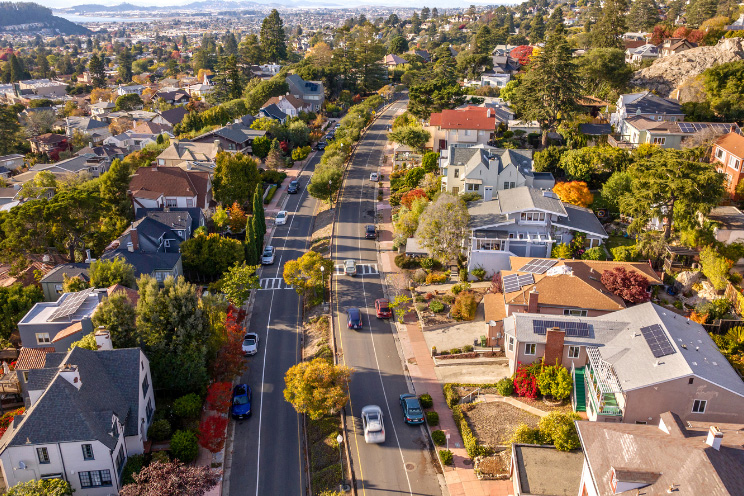
For Immediate Release September 26, 2024
Media Contacts:
Robin Tung, Building Decarbonization Coalition
robin@buildingdecarb.org
Kelly Jones, Office of Senator Dave Min
Kelly.Jones@sen.ca.gov
California state senator Dave Min’s bill to fast track clean energy transition in residential neighborhoods signed into law
Senate Bill (SB) 1221 will empower California utilities to shift away from massively expensive investments to replace and repair aging gas pipelines towards cost-effective community clean energy pilot projects.
(SACRAMENTO, CA) – Senate Bill (SB) 1221, a landmark climate bill authored by Senator Dave Min (D-Irvine) that would facilitate the transition to clean energy for residential neighborhoods by allowing utilities to shift away from investments in aging natural gas pipelines towards more cost-effective and community-scale clean energy pilot projects, was signed into law yesterday. SB 1221 will encourage responsible long-term energy infrastructure planning, advance energy affordability for all Californians, and reduce emissions from the state’s building stock, all while lowering costs for ratepayers.
“The passage of SB 1221 is a critical piece to solving California’s energy affordability crisis for the long-term,” said Senator Dave Min (D-Irvine). “It allows the state to make smarter investments in the energy infrastructure we need now and for generations to come. I am grateful to the Administration, my colleagues, and the many partners who helped to make this piece of legislation law.”
In the midst of California’s affordability crisis, SB 1221 pilots an approach that focuses on upgrading blocks of homes or entire neighborhoods to run on clean energy with the aim of managing the transition off of gas systems. Replacing California’s aging gas pipelines could cost gas utility customers an estimated $20 billion over the next decade, resulting in up to a 900% bill increase by 2050 for gas customers.
“We applaud Senator Min for his leadership and the Administration for taking meaningful action on long-term infrastructure planning and energy affordability with SB 1221,” said Beckie Menten, Interim California Director at the Building Decarbonization Coalition. “Neighborhood-scale decarbonization can benefit ratepayers across the state while expanding cooling, improving air quality, and cutting emissions. This is a major step in California’s clean energy future and these pilots can model how we can scale healthier and safer homes and buildings for the state and nation.”
SB 1221 is sponsored by the Building Decarbonization Coalition, Earthjustice, and the Natural Resources Defense Council, and supported by a diverse coalition of environmental justice advocates, climate organizations, and energy providers. This is the only bill in the U.S. to encourage cost-effective targeted decarbonization projects for a gas-only utility, and will enable California to model clean energy upgrades at the neighborhood-scale for the state and nation.
# # #
Senator Dave Min was elected to the 37th Senate District in 2020 and is the Chair of the Senate Committee on Natural Resources and Water, as well as a member of the California Asian American & Pacific Islander Legislative Caucus. The 37th Senate District is in the heart of Orange County and includes the communities of Anaheim, Costa Mesa, Foothill Ranch, Huntington Beach, Irvine, Laguna Beach, Laguna Woods, Lake Forest, Newport Beach, Orange, Tustin, and Villa Park.
The Building Decarbonization Coalition (BDC) aligns critical stakeholders on a path to transform the nation’s buildings through clean energy, using policy, research, market development, and public engagement. The BDC and its members are charting the course to eliminate fossil fuels in buildings to improve people’s health, cut climate and air pollution, prioritize high road jobs, and ensure that our communities are more resilient to the impacts of climate change. Learn more at www.buildingdecarb.org.
